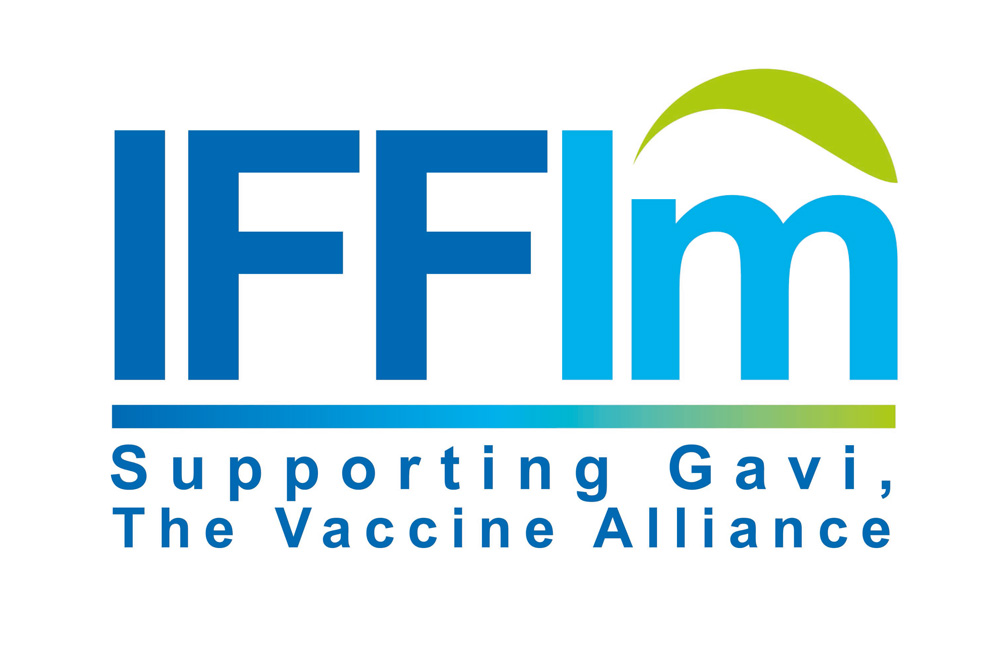Mongolia to combat cervical cancer with massive HPV vaccination campaign
- Impact
- Mongolia to combat cervical cancer with massive HPV vaccination campaign
Mongolia to combat cervical cancer with massive HPV vaccination campaign
1 November 2024

Ainagul Samenbek, mother and cervical cancer survivor. Her personal battle with cervical cancer began two years ago when she was diagnosed with stage 2b cervical cancer.
Mongolia is set to begin vaccinating all its 11-year-olds against the cancer-causing virus. Survivor Ainagul Samenbek calls the jab “our key chance”.
Mongolia is set to begin vaccinating all its 11-year-olds against the cancer-causing virus. Survivor Ainagul Samenbek calls the jab “our key chance”.
By Anand Tumurtogoo
Announcements
IFFIm impact: HPV
IFFIm has provided US$ 132 million to Gavi for its HPV programmes.
Starting in late 2024, 11-year-olds will be vaccinated against the cancer-causing human papillomavirus (HPV) in schools across Mongolia, free of charge. This year’s initiative is part of Mongolia’s broader goal to vaccinate 90% of the population by 2030, ultimately reducing the incidence of cervical cancer to fewer than four cases per 100,000 people – a target that aligns with the United Nations Sustainable Development Goals (SDGs).
Available in Mongolia on a voluntary basis since 2012, uptake of the HPV vaccine has hitherto been limited. That first roll-out a dozen years ago appeared to trigger a wave of anti-vaccine activism in the country, which has continued to challenge immunisation programmes to this day.

The new campaign, however, is propelled forwards by a compelling alliance of health leaders, international partners, grassroots activists and cervical cancer survivors.
One strong voice for vaccination is Ainagul Samenbek’s. Her personal battle with cervical cancer began two years ago when she was diagnosed with stage 2b cervical cancer. At the time, Mongolia could only offer chemotherapy as a treatment option. With such limited choices, Ainagul made the life-altering decision to sell all her assets and travel to Turkey – navigating pandemic-related border restrictions – for surgery.
“The deaths of 140 women mean more than 500 motherless children. I am angered by the anti-vaccine activists who disregard the suffering of these children. Vaccines are our key chance to prevent this fatal cancer.”
- Ainagul Samenbek, mother and cervical cancer survivor
Her treatment had a heavy physical and financial cost. Doctors removed her uterus and ovaries in a bid to cut away the cancer. But the greater danger of not pursuing treatment was clear to her: Ainagul has also lost two family members to cervical cancer.
“It will take five years to know if I’m completely cancer-free,” Ainagul told VaccinesWork.
Lost women
Cervical cancer is a pressing health issue in Mongolia. The country suffers the highest incidence rate in all of Asia, at 18.8 cases for every 100,000 women. Half of all cervical cancer cases in Mongolia are diagnosed at an advanced stage, limiting treatment options, and the country’s mortality rate stands at 10.2 per 100,000.
According to the HPV Information Centre’s 2023 data, 334 women are recorded to be newly diagnosed with the disease each year, with 182 of them dying of it.
On those grounds, the Mongolian government in December 2023 decided to make the HPV vaccine – which is capable of blocking cervical cancer in the vast majority of cases – mandatory for all children, aiming to prevent future generations from facing the same devastating health battles as Ainagul.
Ainagul, a mother of two young daughters, has resolved to vaccinate them against HPV as soon as they reach the appropriate age. But she is concerned about what the growing anti-vaccine sentiment in Mongolia could mean in other families.
“The deaths of 140 women mean more than 500 motherless children,” she said, citing statistics released by the country’s National Cancer Centre a few years ago. “I am angered by the anti-vaccine activists who disregard the suffering of these children. Vaccines are our key chance to prevent this fatal cancer.”
Amid her ongoing recovery from surgery and chemotherapy, Ainagul has become an outspoken advocate for cervical cancer awareness and prevention. Last June, she even ran for parliament, driven by her personal experiences with cancer and the lack of adequate health care infrastructure in Mongolia.
She now manages a Facebook group for cervical cancer patients, offering support and sharing insights into the physical and emotional challenges of battling the disease.
Jabs and screening
The National Center for Communicable Diseases (NCCD) in Mongolia is leading efforts to train health care workers on the importance of HPV vaccination. Dr Dashpagam Otgonbayar, from the NCCD’s Immunization Department, acknowledged that the initial roll-out of the HPV vaccine in the 2010s was hindered by a lack of awareness and even by resistance from some health care workers. “Health workers, who are supposed to spread health information, sometimes told people that HPV vaccines were unnecessary,” Dr Otgonbayar explained.
To address this, the NCCD has launched a comprehensive training programme 0150 for family doctors and nurses across all regions. The goal is to ensure that 80% of Mongolia’s health care workers are fully informed about the benefits of the HPV vaccine, empowering them to communicate accurate information to the public. Additionally, with support from Gavi, the Vaccine Alliance, the NCCD plans to roll out a nationwide awareness campaign to counter the spread of misinformation about vaccines. UNICEF, UNFPA and WHO – again with Gavi funding – are also lending their support to the government of Mongolia in its efforts to introduce the HPV vaccine successfully, sustainably and equitably.
Despite the challenges, Mongolia has also made efforts to detect cervical cancer early through nationwide screening programmes, where women are tested every three years. However, as Dr Undarmaa Tudev, head of the Cancer Registry Surveillance and Early Detection Division, noted, the effectiveness of these screenings depends largely on the skills of the health care workers administering them. “Cell tests are not 100% reliable, and mistakes can happen depending on a health worker’s experience,” she said.
Ainagul firmly believes that vaccination is the most effective way to stop cervical cancer in its tracks. While her journey is far from over – she continues to undergo tests to monitor her recovery – she remains hopeful that Mongolia’s soon-to-expand HPV vaccination program me will save future generations from the suffering she has endured.
 | This article is republished from VaccinesWork under a Creative Commons license. Read the original article. VaccinesWork is an award-winning digital platform hosted by Gavi, the Vaccine Alliance covering news, features and explainers from every corner of global health and immunisation. |
Share this article
Restricted Access Library
 The material in this Restricted Access Library is intended to be accessed only by persons with residence within the territory of a Member State of the European Union and is not intended to be viewed by any other persons. The material in this Restricted Access Library is provided by IFFIm for information purposes only and the materials contained herein were accurate only as of their respective dates. Certain information in the materials contained herein is not intended to be, and is not, current. IFFIm accepts no obligation to update any material contained herein.
The material in this Restricted Access Library is intended to be accessed only by persons with residence within the territory of a Member State of the European Union and is not intended to be viewed by any other persons. The material in this Restricted Access Library is provided by IFFIm for information purposes only and the materials contained herein were accurate only as of their respective dates. Certain information in the materials contained herein is not intended to be, and is not, current. IFFIm accepts no obligation to update any material contained herein.
Persons with residence outside the territory of a Member State of the European Union who have access to or consult any materials posted in this Restricted Access Library should refrain from any action in respect of the securities referred to in such materials and are otherwise required to comply with all applicable laws and regulations in their country of residence.
By clicking Access restricted content: DYNAMIC-LINK-TEXT I confirm that I have read and understood the foregoing and agree that I will be bound by the restrictions and conditions set forth on this page.
The materials in this Restricted Access Library are for distribution only to persons who are not a "retail client" within the meaning of section 761G of the Corporations Act 2001 of Australia and are also sophisticated investors, professional investors or other investors in respect of whom disclosure is not required under Part 6D.2 of the Corporations Act 2001 of Australia and, in all cases, in such circumstances as may be permitted by applicable law in any jurisdiction in which an investor may be located.
The materials in this Restricted Access Library and any documents linked from it are not for access or distribution in any jurisdiction where such access or distribution would be illegal. All of the securities referred to in this Restricted Access Library and in the linked documents have been sold and delivered. The information contained herein and therein does not constitute an offer for sale in the United States or in any other country. The securities described herein and therein have not been, and will not be, registered under the U.S. Securities Act of 1933, as amended (the "Securities Act"), and may not be offered or sold in the United States except pursuant to an exemption from, or in a transaction not subject to, the registration requirements of the Securities Act and in compliance with any applicable state securities laws.
Each person accessing the Restricted Access Library confirms that they are a person who is entitled to do so under all applicable laws, regulations and directives in all applicable jurisdictions. Neither IFFIm nor any of their directors, employees, agents or advisers accepts any liability whatsoever for any loss (including, without limitation, any liability arising from any fault or negligence on the part of IFFIm or its respective directors, employees, agents or advisers) arising from access to Restricted Access Library by any person not entitled to do so.
"Relief" for mothers in Bayelsa state as malaria vaccine makes waves
07 November 2025
